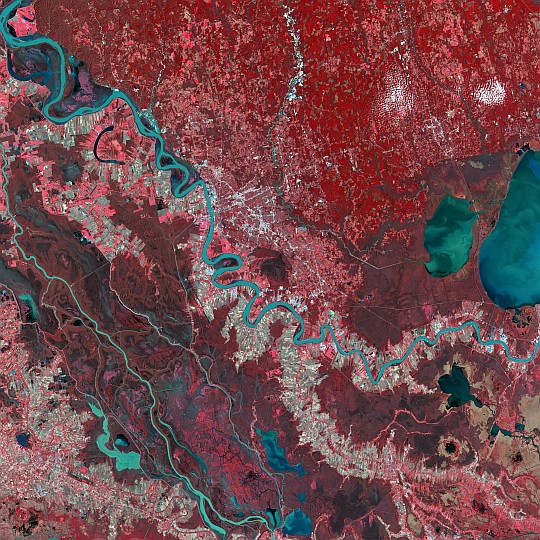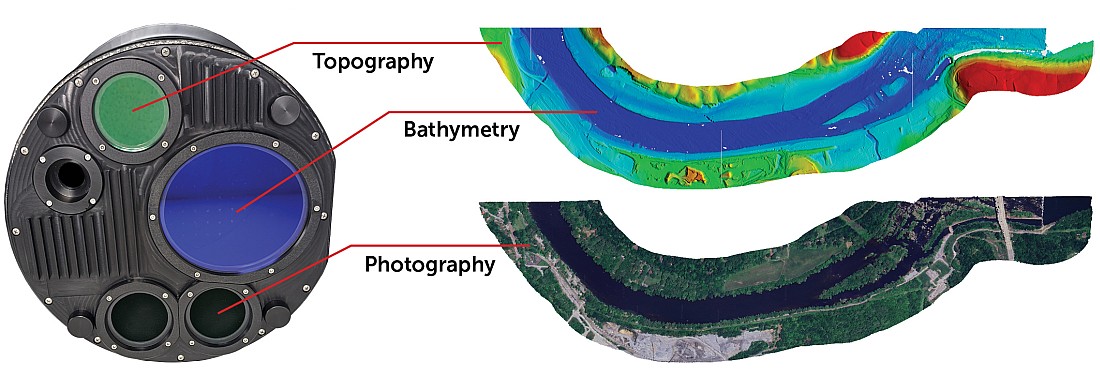Airbus Defence and Space is now offering new capabilities for wide area monitoring through the DMC Constellation, bringing increased resolution (from 12 to 24m) and extra spectral bands, including Red-Edge, Blue, Coastal Blue and Panchromatic. These new assets will boost key capabilities for agriculture, environmental monitoring and disaster management applications.
Complementing existing DMC Constellation satellites, this expansion of imaging capability is possible through exclusive commercial imagery agreements for the Alsat-1B satellite mission with the Algerian Space Agency (ASAL), and for the KazSTSAT satellite mission with Ghalam LLP. This is a significant step for all parties, which ensures partners leverage Airbus’ expertise in end-to-end mission operation services, while improving Airbus satellites’ fleet capacities.
“Our team in Guildford, UK, has been managing imagery operations and processing since 2004 with the DMC Constellation and this opportunity will allow our customers to benefit from continuity, consistency of pricing, a wider offer and our long term experience. We are also committed to expand the UK contribution to the International Charter for Space and Major Disaster through the addition of these new missions,” said Phil Brownnett, Head of UK Programmes at Airbus Defence and Space, Intelligence.
The DMC Constellation has been integral to the success of major monitoring programmes over the USA and Europe for agriculture, as well as helping to combat deforestation in the Amazon Basin, and will continue to complement imagery from the Sentinel-2 and Landsat-8 missions. Additionally, future seamless integration into existing Airbus offers such as OneAtlas, Verde and Starling will ensure more effective global monitoring. Specifically, the Red-Edge band is crucial to calculate biophysical parameters such as chlorophyll content, enabling insight into leaf nitrogen content.
Along with the DMC Constellation, Airbus Defence and Space offers exclusive commercial access to the largest fleet of high-resolution Earth observation satellites: the Pléiades twins, the SPOT 6 and SPOT 7 satellites and the weather-independent radar satellites TerraSAR-X, TanDEM-X and PAZ. The constellation is also reinforced by satellite partners such as TripleSat and KazEOSat.







